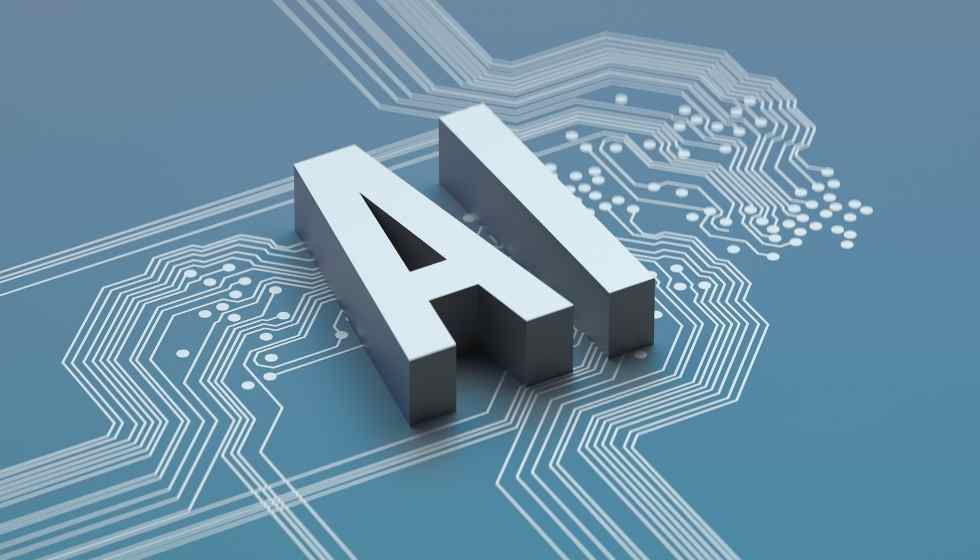Artificial Intelligence (AI) is here to stay. Many companies already benefit from this technology, which saves time and effort for company workers.
WHAT IS ARTIFICIAL INTELLIGENCE?
Artificial Intelligence is the ability of machines to act like humans; they acquire the same capabilities as us. In this way, machines are capable of reasoning, learning, and thinking and are endowed with creativity, among many other things.
Thanks to AI, the machines have a system that allows the reception of the environment and its relationship so that they can solve problems and act autonomously for specific purposes. The machine can receive data, process it, and respond to it without requiring a person to command or operate it.
To achieve this technological advance, three fundamental elements are needed:
- Computer Systems
- Data and Data Management
- Advanced AI Algorithms
TYPES OF ARTIFICIAL INTELLIGENCE
To make machines think and execute like humans, different types of Artificial Intelligence have been developed:
REACTIVE MACHINES
Reactive machines are the oldest and the simplest. It is one of the first AI models, and its function is to reproduce human behavior based on stimulation. In other words, the machine reacts to a stimulus but cannot learn.
This type of Artificial Intelligence is based on decisions of the present since they do not have a database or memory capacity. Therefore, they are not capable of learning from experiences, nor can they evolve.
An example of reactive machines would be a computer game of chess; the system responds to a move made by the user but does not store the data.
LIMITED MEMORY
Thanks to limited memory, machines can look into the past. This means they can observe and identify specific objects and monitor them over time.
Limited memory AI is also reactive, like the previous example. Still, thanks to the storage capacity of some data, they can make small decisions to respond to a request or perform any action.
As its name indicates, this memory is limited, so it does not have ample data storage. Some examples of Artificial Intelligence with little memory are facial recognition systems, virtual assistants, or automatic response chats.
THEORY OF MIND
This time the AI goes much further. In addition to reacting and memorizing, this system tries to understand people’s emotions, needs, and reflection processes. This type of Artificial Intelligence is under development, and although many technological advances are still needed to achieve it, it has excellent potential.
With the theory in mind, the aim is to execute a system capable of knowing what we want and offering an appropriate response. It is not about having a database, but rather the machine is intended to understand human reasoning and adjust its behavior according to the information obtained.
It seems like a thing of the future, but we are getting closer to achieving an Artificial Intelligence that manages to interact socially with human beings.
SELF AWARENESS
Self-awareness is the future of Artificial Intelligence. The objective is to create machines that understand emotions, know how to deduce, and are capable of reacting through their understanding and interpretation of stimuli. Practically, you want to make a human being through machines.
This concept still needs to be developed, and experts are working on it.
BENEFITS OF AI IN A COMPANY
Previously, we have known some examples of Artificial Intelligence (AI) that we can find on our phones or computers. Still, AI is not only used at a personal level, but companies can obtain many benefits from the use of this technology.
IMPROVE CUSTOMER SERVICE
A clear example is the use of chatbots on web pages. Implementing an automatic response chat service allows you to have immediate communication with the client, resolving doubts at any time without having to have an employee waiting to answer the messages.
This AI application can be helpful to all types of companies, but the ones that can take advantage of the most are those with few employees and those that sell online.
DATA COLLECTION AND ANALYSIS
Artificial Intelligence allows companies to collect millions of data and analyze them. Of course, the GDPR will always have to be respected if we process customer data, but this action can help us predict trends, look for new solutions and promote innovation in the company.
CUSTOMER SEGMENTATION
The ability to learn that machines acquire with AI has a fundamental role in customer segmentation. Thanks to Artificial Intelligence, machines can obtain qualified leads and quality information about customer tastes and preferences. This allows us to offer offers tailored to your needs, discounts, and personalized advertising.
It is clear that Artificial Intelligence has revolutionized the world and has made work more accessible in almost all business areas. Implementing AI systems in companies can generate significant benefits.
